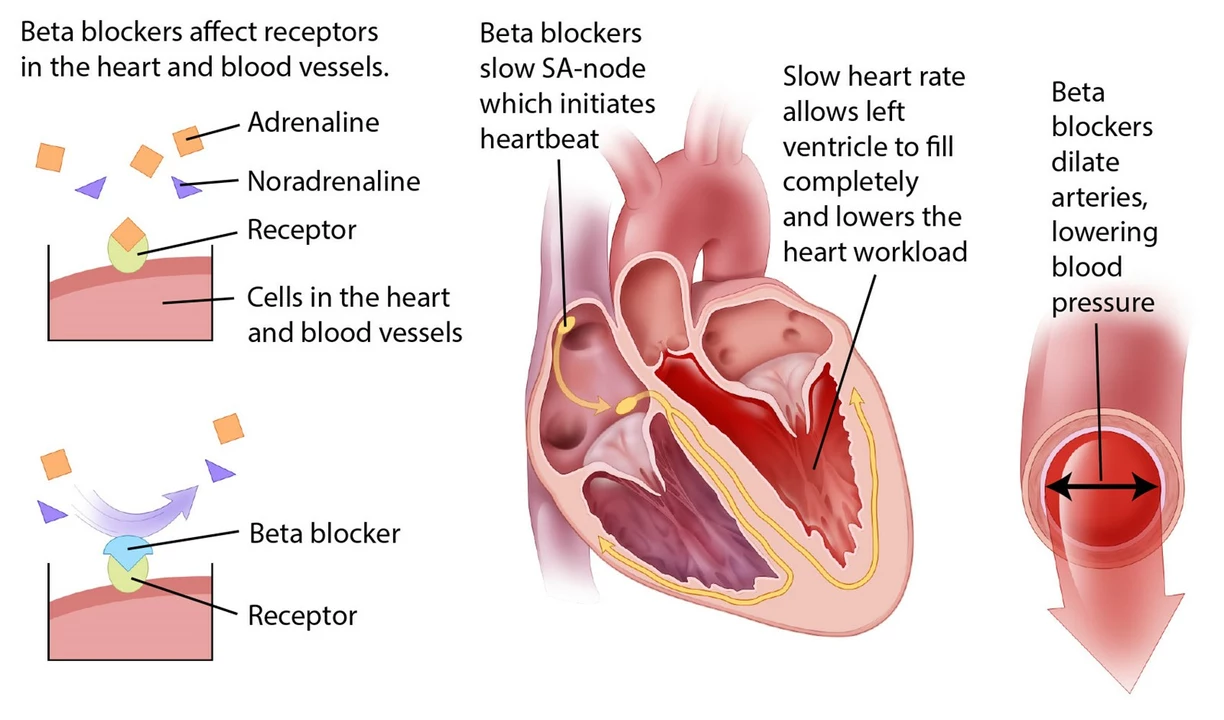Atenolol: What It Does and How to Use It Safely
Atenolol is a beta-blocker used mainly for high blood pressure and chest pain (angina). It slows your heart rate and lowers blood pressure, which reduces the heart’s workload. If your doctor prescribes atenolol, knowing how it works and what to watch for makes treatment easier and safer.
How to take atenolol
Take atenolol exactly as your doctor tells you. Common starting doses are 25–50 mg once a day for hypertension; doses vary for other reasons. Take it at the same time each day — morning is convenient for most people. You can take it with or without food.
If you miss a dose, take it when you remember unless it's almost time for the next one. Don’t double up. Don’t stop atenolol suddenly — doing so can cause rapid heart rate, chest pain, or other serious problems. If you and your doctor decide to stop, they will usually lower the dose gradually.
Common side effects and safety tips
Expect some side effects at first. The most common are tiredness, cold hands or feet, and a slower heartbeat. If you feel faint, dizzy, or very tired, check your blood pressure and heart rate and call your doctor. Severe breathing problems, signs of an allergic reaction, or very low heart rate need urgent care.
There are a few clear warnings: if you have asthma or serious lung disease, atenolol can make breathing worse. If you have diabetes, atenolol can hide low blood sugar symptoms like a fast heartbeat — so monitor glucose closely. Also tell your doctor if you have kidney problems; dose changes may be needed.
Atenolol interacts with other drugs. Combining it with certain calcium channel blockers, some antiarrhythmics, or other blood pressure meds can make your heart rate and blood pressure drop too low. Some over-the-counter medicines, like NSAIDs, may reduce atenolol’s effect. Always list all drugs — prescription, OTC, and supplements — when you talk with your provider.
Keep track of blood pressure and pulse at home. A simple home monitor helps you and your doctor see if the dose is right. If your resting heart rate is consistently below about 50 beats per minute or you feel dizzy, report it.
Looking to buy atenolol online? Use a reputable pharmacy that requires a prescription and shows contact details and pharmacist support. Avoid sites that sell without a prescription or offer suspiciously low prices. Your health depends on real medicine and proper dosing — cutting corners can be risky.
Questions to ask your doctor: Why atenolol instead of another beta blocker? How long will I take it? What dose change signs should I watch for? These practical questions help you get the most from treatment without surprises.
If you stick to the dose, watch for side effects, and check in with your provider, atenolol can be an effective tool to control blood pressure and reduce chest pain. If anything feels off, call your doctor — don't try to guess the next step on your own.

Atenolol and Weakness: Is It a Side Effect?
- 19 Comments
- Apr, 28 2023
I recently came across some information about Atenolol, a medication commonly prescribed for high blood pressure and heart issues. It seems that some users have reported experiencing weakness as a side effect. After doing some research, I've found out that weakness is indeed listed as a potential side effect of Atenolol. If you're taking this medication and experiencing weakness, it's important to discuss this with your healthcare provider. They can help determine if it's related to the medication and suggest possible alternatives or adjustments to your treatment plan.




